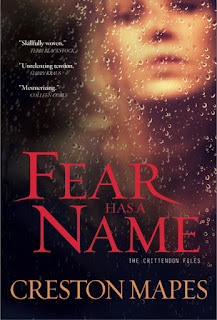 |
| man thinking* |
One goal—perhaps the central objective—of writing is communication. Our words matter; our phrasing matters.
One of an editor’s jobs is to interpret what the writer is saying. That’s another level of evaluation beyond grammatical rules or story structure, a level regarding content and communication. As writers, we should think that way too. Fresh writing impresses editors.
Clichés are phrases that were developed (or accidentally invented) to communicate a thought, feeling, or situation. Most of the time, they’re used in regards to universal ideas/situations, but not always.
Most editors flag clichés. Why? One reason is that clichés do not communicate well. Another, is that clichés can be redundant. Also, if someone has been trained to mentally catch clichés, when they read one in a book, the familiar-but-meaningless phrase will jar them out of the story. (Confession: I highlight cliches in books I read on my Kindle.)
See if you can find any meaninglessness or redundancy in the following list:
Examples of clichés:
Each and every one of you
Bless his/her/your heart
Caught between a rock and a hard place
Making a mountain out of a molehill
S/he hadn't a moment to lose
A drop in a/the bucket
Six of one, half a dozen of another
Couldn’t/can’t help but (a personal pet peeve)
Now, you could probably define exactly what each of these means. We’ve certainly heard/ read/used these enough, haven’t we? But if we do see them in books, do they really communicate something, or do we gloss over the phrase and search for deeper meaning elsewhere? Also, sometimes clichés don’t mean what they appear to mean, which can confuse readers who aren’t familiar with the inherent sarcasm or true intended meaning. (I’ve heard “bless your heart” isn’t always meant as a blessing…)
That’s why editors will most likely ask you to “write fresh,” or rework clichés. There are extra steps involved, but the work will pay off.
Here are some tips for reworking clichés:
Ask yourself—What am I trying to say? It’s okay to start with a cliché in your rough draft, but then rework it. Analyze it. What is the cliché saying? How can you say it better? Go for deeper meanings, nuances, layers. Focus on communication, and strategize how to best get your intended meaning across.
Pull out a thesaurus—Sometimes replacing a word or two is all you need to do. Don’t make it too complicated, and don’t let one phrase or scene get you bogged down. But, don’t get lazy either. The strongest writing is cliché free. Reworking clichés isn’t always easy, but it does get easier.
Don’t use the first phrase you think of—Oftentimes, our minds tend to think in clichés. It’s easier. So, like I said, start there. Then, reword.
Stay alert—Watch for clichés. One writing workshop teacher used to say “cliché alert” every time someone used one in her class, including whenever she quoted one. That kind of thinking will keep us aware of when a cliché pops up so we can practice rewording it.
Exception
Yes, there are exceptions to every rule. Perhaps your character really does use clichés. Maybe your story wouldn’t be the same without him/her. These characters even think in clichés. So, go ahead and include them in his/her dialogue and introspection. But beware. Readers are going to search for meaning elsewhere. Be careful how often s/he uses them. And don’t use your character as an excuse to leave too many clichés in your final draft. In other words, be intentional.
Challenge yourself to avoid clichés whenever possible, even in non-manuscript writing. By practicing not using them in our speech, e-mails, or social media, we’re training ourselves to rethink and reword as we create sentences. Remember, writing is all about communicating ideas.
Application
Comb through your current manuscript. Find any clichés? See if you can rework them so they vanish and fresh writing takes their place. Your editor will thank you for it. Your readers will too.
 |
| Annette M. Irby |
~~~~~
Annette M. Irby has two published books and runs her own freelance editing business, AMI Editing. Her next book releases in early 2015. She is also an acquisitions editor for Pelican Book Group. See her page here on Seriously Write for more information.
~~~~~
photo credit: "young man thinking something by stockimages" on freedigitalphotos.net




